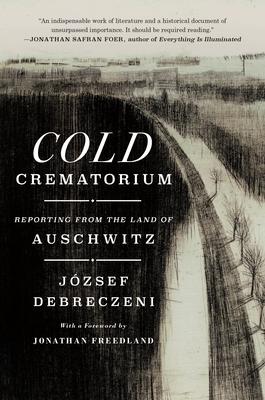The first English language edition of a lost memoir by a Holocaust survivor, offering a shocking and deeply moving perspective on life within the camps--with a foreword by Jonathan Freedland.
Jzsef Debreczeni, a prolific Hungarian-language journalist and poet, arrived in Auschwitz in 1944; had he been selected to go "left," his life expectancy would have been approximately forty-five minutes. One of the "lucky" ones, he was sent to the "right," which led to twelve horrifying months of incarceration and slave labor in a series of camps, ending in the "Cold Crematorium"--the so-called hospital of the forced labor camp Drnhau, where prisoners too weak to work awaited execution. But as Soviet and Allied troops closed in on the camps, local Nazi commanders--anxious about the possible consequences of outright murder--decided to leave the remaining prisoners to die in droves rather than sending them directly to the gas chambers.

Cold Crematorium: Reporting from the Land of Auschwitz
The first English language edition of a lost memoir by a Holocaust survivor, offering a shocking and deeply moving perspective on life within the camps--with a foreword by Jonathan Freedland.
Jzsef Debreczeni, a prolific Hungarian-language journalist and poet, arrived in Auschwitz in 1944; had he been selected to go "left," his life expectancy would have been approximately forty-five minutes. One of the "lucky" ones, he was sent to the "right," which led to twelve horrifying months of incarceration and slave labor in a series of camps, ending in the "Cold Crematorium"--the so-called hospital of the forced labor camp Drnhau, where prisoners too weak to work awaited execution. But as Soviet and Allied troops closed in on the camps, local Nazi commanders--anxious about the possible consequences of outright murder--decided to leave the remaining prisoners to die in droves rather than sending them directly to the gas chambers.